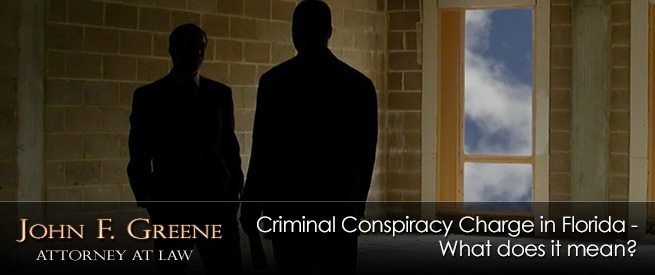
Criminal proceedings are complicated enough as is in the state of Florida, but what if the alleged crime purely surrounds the agreement to commit a different offense? This situation forms the basis of criminal conspiracy, which can deliver surprisingly harsh penalties for accused individuals. Learn all about Criminal Conspiracy Charges in Florida below.
Criminal Conspiracy Charges in Florida: The Basics
Criminal conspiracies, attempts, and solicitation are discussed in detail in Chapter 777 of the Florida Statutes. According to state law, a criminal attempt occurs when somebody tries to “commit an offense prohibited by law.”
For an attempt to qualify as a crime, the person must also commit “any act toward the commission of” the planned offense. He or she must also ultimately fail “in the perpetration or [be] intercepted or prevented in the execution” of the intended crime.
Although similar in some respects to criminal attempt, a criminal conspiracy by nature involves more than one person. To be accused of conspiracy, these people must agree to commit a specific offense. They must seriously intend for the crime to eventually be carried out.
Conviction depends on the prosecution establishing both an agreement between multiple parties and the intent to actually commit the crime. The prosecution does not, however, have to prove that any acts were committed in furtherance of the intended crime. Evidence of intent and agreement generally prove more than sufficient to obtain a conviction.
Florida Penalties For Conspiracy Conviction
Conspiracy penalties can prove surprisingly complicated in the state of Florida. A lot rests on what would have happened or how the defendants would have been charged if the conspiracy was carried out successfully.
While offenders do not receive the full sentence associated with the attempted crime, conspiracies typically only reduce charges by just one level. For example, while the sale of certain illicit drugs may be typically punished as level 5 offenses, conspiracy to sell said drugs may result in a level 4 penalty.
Common Defenses to Criminal Conspiracy Charges in Florida
Criminal conspiracy cases often involve a notable lack of concrete evidence. This opens the door to strong defense opportunities for the defendant. Common defenses include:
- No proof of intent to commit the offense in question.
- Aiding and abetting during discussions surrounding the intended crime — without actually agreeing to get involved in the execution of the offense.
- Alleged agreements with undercover officers. Activity involving undercover officials does not hold legal sway until the alleged offender actually commits a crime.
- The presence of the alleged offender during a crime committed by somebody else. Presence does not constitute participation or even infer the intent to participate.
- Agreeing to commit a different offense than that actually carried out by the alleged offenders.
- Withdrawing from the agreement to commit a crime — especially if this withdrawal results in the crime not being committed at all.
The Need for a Trusted Florida Criminal Defense Attorney
While numerous defenses are available for Florida criminal conspiracy cases, quality representation can determine whether these arguments actually hold sway in a court of law. As such, it is absolutely imperative to seek strong legal counsel as soon as you are accused of committing criminal conspiracy. Don’t underestimate the seriousness of such charges; a conviction could prove devastating.
Attorney John F. Greene boasts decades of experience in criminal defense. He understands what it takes to achieve desired outcomes in complex conspiracy cases. Call 850-424-6833 or get in touch online to learn more about your legal options.










